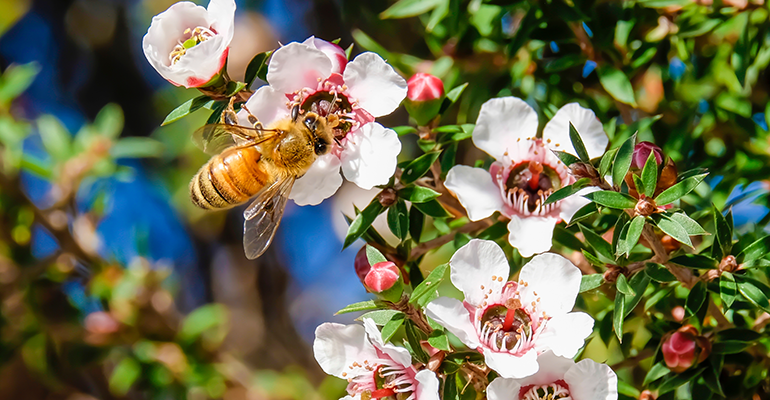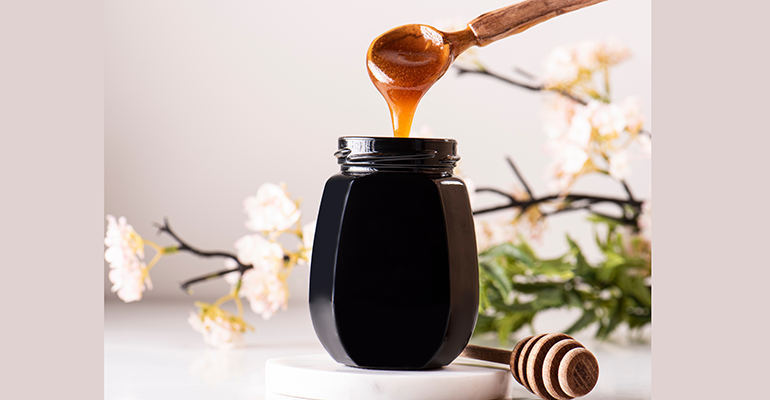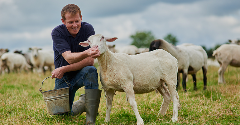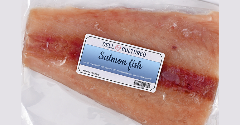News
New Zealand mānuka honey producers lose battle to trademark product
7 Jun 2023New Zealand’s Intellectual Property Office (IPO) has ruled that mānuka honey cannot be trademarked, which means that neighbouring Australian producers can use the valuable name.
The decision, published last month, ruled that the application to trademark the product did not meet certain requirements and that the term mānuka was descriptive.

Mānuka honey is the monofloral honey produced from the nectar of the mānuka tree, Leptospermum scoparium. While mānuka is the Māori name of the tree, the unaccented spelling manuka remains relatively common in the English language.
The antimicrobial benefits of the honey, coupled with the strength of the mānuka name has ensured a strong demand for the honey from countries around the world including the US, Japan, China and Germany.
Commenting on the latest decision by New Zealand’s IPO, Pita Tipene, the chair of New Zealand’s Mānuka Charitable Trust, said the ruling was “disappointing in so many ways.”
“If anything, it has made us more determined to protect what is ours on behalf of all New Zealanders and consumers who value authenticity. We will take some time to absorb the details of the ruling and consider our next steps,” he added.
However, the decision was welcomed by the Australian sector.
“We are delighted with the judgment handed down by the IPO,” said Ben McKee, chairman of the Australian Manuka Honey Association (AMHA). It has argued in the past that ‘manuka’ is a generic term.
“This is positive news not just for Australian manuka producers, but also the broader industry – the thousands of people involved in producing, transporting and selling manuka honey as a consumable and as an ingredient in an expanding range of pharmaceutical, health and beauty products.”
Broader implications for the global food industry
The AMHA added that the decision paved the way to accelerate global sales in an international mānuka honey market, where these products can sell for between €185-308 (A$300-500) per kilo, adding to an industry worth around €781m ($1.27bn) in annual trade by 2027.
The ruling could well have broader implications for the global food industry, particularly the business-to-business (B2B) sector, where the case emphasises the complexities of trademarking food products.
 Pictured: Mānuka honey | © AdobeStock/Thache
Pictured: Mānuka honey | © AdobeStock/Thache
Of equal importance is the impact of cultural heritage and the growing demand for authenticity, which in recent years has become an issue of contention for products with a geographical indication such as Parmigiano Reggiano cheese and Champagne.
UK and Europe ruling over the mānuka honey name
The ruling echoes a decision made by the UK High Court at the start of this year, in which New Zealand’s Manuka Honey Appellation Society (MHAS) discontinued its appeal over a decision to reject a trademark claim of the words ‘mānuka honey.’
Weeks earlier, the New Zealand producers also withdrew their application for the ‘mānuka honey’ certification mark in the European Union.
Free Trade Agreement recognises mānuka meaning
Tipene also pointed out that the ruling was out of step with the recent New Zealand and European Union (EU) Free Trade Agreement which includes the recognition of mānuka as a Māori word.
The agreement also recognises mānuka honey as a separate tariff line that recognises the inherent distinctiveness of mānuka as a taonga species exclusively from New Zealand, known as Aotearoa in the Māori language.
Related news

Snack trends, ingredient claims, and plant-based perceptions: Highlights from Fi Europe 2023, part 1
7 Dec 2023
Value-led snacking, sustainability storytelling, and the importance of having a ‘star ingredient’: we asked consumer analysts and market experts at Fi Europe about the trends and innovations that are shaping the food industry.
Read more
Confirmed: California bans four ‘toxic’ food additives
10 Oct 2023
Four food additives, including the colouring Red No. 3, will be banned in food in the US state of California over safety concerns, with public health campaigners hoping this will spark a nationwide ban in the coming years.
Read more
Advocacy groups condemn EU Commission for backpedalling on animal rights
3 Oct 2023
Amid rumours that the EU may abandon its plans to improve animal welfare in farming and end the use of cages, many stakeholders have condemned this possibility and urged the EU to reconsider.
Read more
Poland and Ukraine attempt to resolve grain dispute
29 Sep 2023
Poland and Ukraine have begun talks to try to resolve a dispute regarding the ban on Kyiv’s grain imports that prompted Kyiv to file a lawsuit to the World Trade Organization.
Read more
The EU may be set to scrap its sustainability commitments
27 Sep 2023
A speech delivered by President Ursula von der Leyen last week inferred that the EU could be drawing back on its commitments to create a more sustainable and healthier food system.
Read more
Industry first: Mosa Meat becomes first cultivated meat startup to gain B Corp certification
11 Sep 2023
A first for the industry, Dutch cultivated meat company Mosa Meat announced that it has received B Corp certification and will soon apply for regulatory approval across the globe.
Read more
German supermarket trials climate-centric pricing model
29 Aug 2023
German discount supermarket Penny has trialled increasing product prices to mirror their health and environmental costs.
Read more
EPR fee delay spurs concerns over UK’s sustainability commitment
8 Aug 2023
The UK government’s decision to push back the introduction of fees for the Extended Producer Responsibility (EPR) due to inflation has raised doubts about whether this sustainability commitment will ever be realised.
Read more
Latino-owned food startups tackle climate change
25 Jul 2023
A growing list of Latino-founded food and beverage startups in the US are putting sustainability at the forefront of their businesses for the sake of the planet.
Read more
Industry first: The Netherlands approves cultivated meat and seafood tastings
17 Jul 2023
The Netherlands has become the first country in Europe to approve tastings of cultivated meat and seafood in controlled environments, yet there is still a long way to go before widescale commercialisation is achieved.
Read more